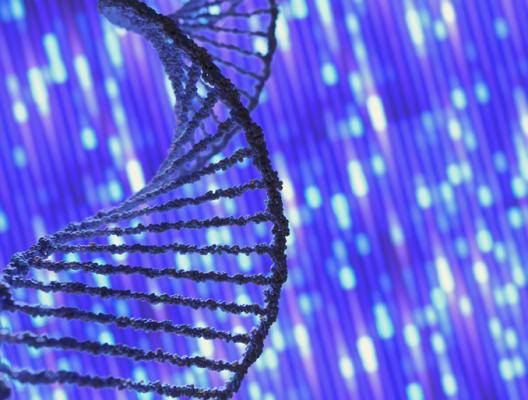
Photo credit: Getty Images
February 8, 2023 — Results of research that identified new causes of Atherosclerotic Coronary Artery Disease, or ASCAD, have been reported by G3 Therapeutics (Global Genomics Group) and Aitia. The findings imply that LDL-TG could be a novel diagnostic marker for ASCAD, and could also open up potential novel treatment targets for atherosclerosis, focusing on triglyceride-rich LDL particles, according to a joint statement issued by the companies involved in the research.
The results are found in the paper “Bayesian network analysis of panomic biological big data identifies the importance of triglyceride-rich LDL in atherosclerosis development," published in the journal Frontiers in Cardiovascular Medicine.
Triglyceride-rich LDL particles were found to be directly causal in ASCAD based on Aitia’s Digital Twins built on G3’s Global Multi-omic Clinical Study Data and Aitia’s Causal AI Technology. The researchers of the prospective, multicenter study noted that LDL-Triglycerides may become an important diagnostic biomarker in ASCAD, and may lead to new therapeutics.
G3 Therapeutics is a life sciences company that leverages large-scale multi-omic biological big data to develop life-changing therapeutics and diagnostics, and Aitia is focused on the application of Causal AI and Digital Twins to discover and develop new drugs.
The analysis conducted by G3 Therapeutics, Aitia, and their team of scientific collaborators, discovered that triglyceride-rich LDL particles appeared directly upstream from ASCAD in the Digital Twin models, suggesting causality of triglyceride-rich LDL particles. The role of the triglyceride-rich LDL particles was independent of the cholesterol content of LDL particles (independent of LDL-C) and the potential causality was further confirmed by genetic validation, based on the hepatic lipase gene (“LIPC”). The analysis also revealed that atherogenic lipoproteins, inflammation, and endothelial dysfunction are involved in ASCAD, the leading cause of morbidity and mortality worldwide, lending additional credence to the novel findings.
“For decades, we have singularly focused on LDL-cholesterol as the sole treatment target in atherosclerotic coronary artery disease,” said Szilard Voros, MD, FACC, FSCCT, FAHA, CEO and founder of G3 Therapeutics. He added, “Now, this new discovery of triglyceride-rich LDL particles opens a previously untapped set of opportunities to bring novel diagnostic and therapeutic approaches to our patients suffering from devastating cardiovascular disease. Our discovery demonstrates the power of the combination of biological big data and causal AI in bringing entirely novel treatments to our patients.”
“This landmark result clearly demonstrates the power of causal AI and Digital Twins to reveal the hidden circuitry of cardiovascular disease from large-scale multi-omic data”, said Colin Hill, CEO and co-founder of Aitia. “Seventy years of cardiovascular biology including LDL, PCSK9, and Lp(a) were reconstructed in a hypothesis-free fashion in a few months, which created the opportunity to rapidly discover new drivers of atherosclerotic disease such as triglyceride-rich LDL that has eluded researchers for decades. A new era of AI-driven techbio discovery has begun,” added Hill.
An excerpt from the author’s summary follows: “While ApoB-containing lipoproteins, inflammatory biomarkers, and markers of endothelial dysfunction and fibrosis were all associated with human coronary atherosclerosis, triglyceride-rich LDL particles, as measured by LDL-TG levels, emerged as a potentially key factor, within a sub-network that includes apoB and LDL-C. Furthermore, genetic analysis revealed the potential central role of the hepatic lipase/LDL-TG axis in atherosclerosis…Furthermore, the results from this study have confirmed a possible role of hepatic lipase in human coronary atherosclerosis, which in the future can be explored as a target for drug development. It is also already known that several approved lipid-lowering drugs, such as fibrates, and statins, have a differential effect on LDL-TG versus LDL-C (33), which will be useful to further investigate to better understand their overall impact in cardiovascular event reduction.”
G3 Therapeutic’s G3LOBAL Database is derived from the GLOBAL clinical study (NCT01738828), an international prospective, multi-center study recruiting up to 10,000 patients to characterize novel disease networks and biomarkers. The company reports that GLOBAL is the largest and most comprehensive pan-omic study combining whole genome sequencing, whole genome methylation, whole transcriptome sequencing, unbiased proteomics, metabolomics, lipidomics, and lipoprotein proteomics with coronary computed tomographic (CT) angiography, an advanced imaging technology for phenotyping, which allows the precise classification of disease in patients, according to the summary of findings issued in the joing statement.
More information: www.g3therapeutics.com www.aitiabio.com
Reference: Front. Cardiovasc. Med., 04 January 2023
Sec. Lipids in Cardiovascular Disease
Volume 9 - 2022 | https://doi.org/10.3389/fcvm.2022.960419
33. Hirano T, Kodera R, Hirashima T, Suzuki N, Aoki E, Hosoya M, et al. Metabolic properties of lowdensity lipoprotein (LDL) triglycerides in patients with type 2 diabetes, comparison with small dense LDL-cholesterol. J Atheroscler Thromb. (2021) 29:762–74. doi: 10.5551/jat.62789


 February 03, 2026
February 03, 2026 









